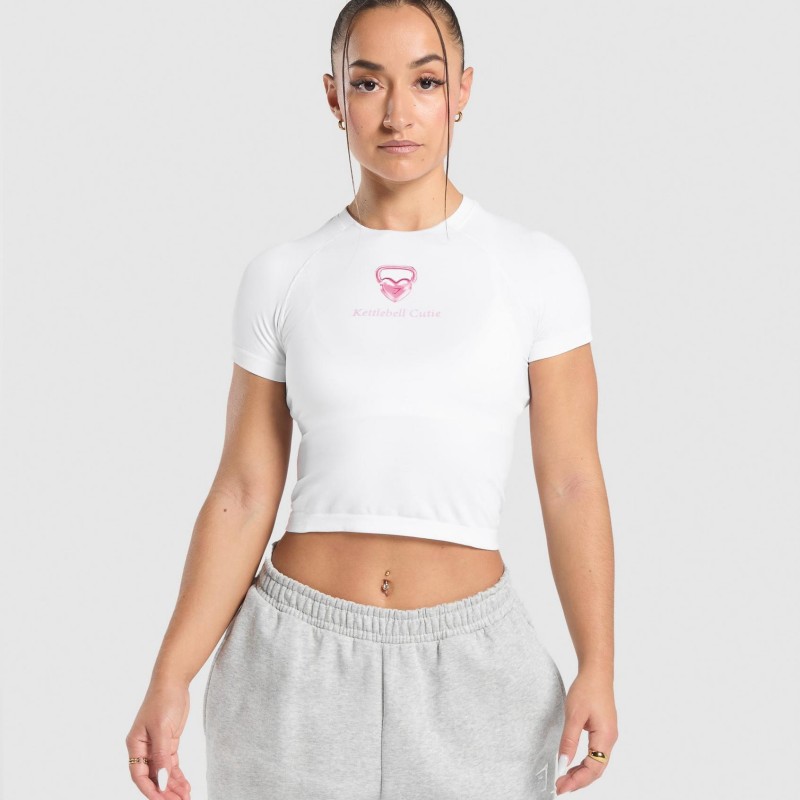In an era where environmental consciousness is more important than ever, the fashion industry is undergoing a significant transformation towards sustainability. Among the various initiatives, producing eco-friendly recycled t-shirts stands out as a practical and impactful solution to reduce waste and promote responsible consumerism. This shift in fashion is not merely a trend; it reflects a growing awareness of how our clothing choices affect the planet. Eco-friendly recycled t-shirts are made from materials that would otherwise contribute to landfill waste, effectively minimizing textile waste and conserving natural resources. Additionally, these t-shirts often utilize environmentally friendly processes and materials, making them a healthier choice for both consumers and the planet. In this comprehensive article, we will delve into the various aspects of eco-friendly recycled t-shirts, including their materials, benefits, styles, brands, and the broader impact they have on the environment and fashion industry.

Contents
- 1 Understanding Fast Fashion and Its Environmental Impact
- 2 The Rise of Eco-Friendly Recycled T-Shirts
- 3 Materials Used in Eco-Friendly Recycled T-Shirts
- 4 How to Choose the Right Eco-Friendly Recycled T-Shirt
- 5 Styling Eco-Friendly Recycled T-Shirts
- 6 Eco-Friendly Initiatives Beyond T-Shirts
- 7 The Future of Eco-Friendly T-Shirts
- 8 Conclusion
Understanding Fast Fashion and Its Environmental Impact
Before we dive into the benefits and details of eco-friendly recycled t-shirts, it is essential to comprehend the background of the fashion industry, particularly the concept of fast fashion and its detrimental effects on the environment.
What is Fast Fashion?
Fast fashion refers to the production of inexpensive clothing that delivers the latest trends quickly and affordably. This model prioritizes speed and volume, leading to substantial environmental costs.
- Excessive Production: Fast fashion brands often produce clothes in mass quantities, encouraging consumers to buy more than they need. This overproduction contributes to staggering amounts of textile waste.
- Resource Depletion: The rapid production cycle necessitates significant amounts of water, energy, and raw materials, which depletes natural resources and emits greenhouse gases.
Environmental Consequences
The consequences of fast fashion are dire and multifaceted:
- Textile Waste: According to the EPA, millions of tons of textile waste are generated in the U.S. alone each year, with a large portion ending up in landfills, where they can take decades or even centuries to decompose.
- Water Pollution: The dyeing process involved in creating clothing results in water pollution, harming aquatic ecosystems and impacting communities reliant on clean water sources.
- Reduction of Biodiversity: Over-farming for natural fibers, such as cotton, can lead to soil degradation and harm biodiversity, disrupting local ecosystems.
Recognizing these issues has prompted a backlash against fast fashion, leading consumers and manufacturers alike to seek more sustainable alternatives.
The Rise of Eco-Friendly Recycled T-Shirts
In response to the environmental challenges posed by fast fashion, eco-friendly recycled t-shirts emerge as a sustainable choice, combining style with sustainability.
What Are Eco-Friendly Recycled T-Shirts?
Eco-friendly recycled t-shirts are made from materials that have been repurposed, often from discarded clothing and textiles. This process not only diverts waste from landfills but also reduces the need for new raw materials.
- How They Are Made: The production process usually involves collecting used garments, shredding the fabric, and spinning the fibers into new yarns. The recycled yarn is then woven or knit into fabric, ultimately made into stylish t-shirts.
Benefits of Eco-Friendly Recycled T-Shirts
By choosing eco-friendly recycled t-shirts, consumers contribute to sustainable fashion while enjoying several benefits:
- Waste Reduction: Every recycled garment helps divert textile waste from landfills, minimizing the volume of waste generated.
- Resource Conservation: Recycling fabric uses fewer resources compared to producing new clothing, significantly saving water, energy, and raw materials.
- Lower Carbon Footprint: The process of recycling fabric typically produces lower greenhouse gas emissions than manufacturing new clothing from scratch.
- Healthier Alternatives: Eco-friendly manufacturing processes often utilize non-toxic dyes and chemicals, resulting in safer clothing for wearers and the environment.
Materials Used in Eco-Friendly Recycled T-Shirts
Understanding the materials used in eco-friendly recycled t-shirts allows consumers to make informed decisions about their clothing choices.
Recycled Cotton
One of the most common materials in eco-friendly t-shirts is recycled cotton.
- Production Process: Recycled cotton is derived from leftover cotton scraps from the manufacturing process or worn-out garments. The process of recycling cotton involves shredding the fabric, removing contaminants, and then spinning the fibers into new yarn.
- Benefits: Cotton is a naturally breathable and comfortable fabric, making it an excellent choice for t-shirts. Additionally, recycling cotton reduces the demand for virgin cotton, promoting sustainability.
Recycled Polyester
Recycled polyester is made from plastic bottles and other polyester waste.
- Sourcing and Processing: Plastic products are collected and processed into flakes, which are then melted and spun into fibers. This method effectively reduces plastic waste in landfills and oceans.
- Durability and Versatility: Recycled polyester is resilient, quick-drying, and often used in activewear. It possesses moisture-wicking properties, making it a popular fabric for t-shirts designed for physical activities.

Blended Fabrics
Many eco-friendly recycled t-shirts use a blend of materials to enhance performance and comfort.
- Cotton-Polyester Blends: Combining recycled cotton and polyester can create a soft, durable fabric that balances comfort with enhanced performance features.
- Alternative Fibers: Some brands utilize other eco-friendly fibers, such as Tencel, hemp, or bamboo, in combination with recycled materials, adding to the garment’s environmental benefits while providing unique textures and properties.
Organic and Fair Trade Certifications
When shopping for eco-friendly recycled t-shirts, look for certifications that verify sustainable and ethical production practices.
- Global Organic Textile Standard (GOTS): This certification ensures that textiles are made from organic fibers throughout the production process while focusing on environmental and social criteria.
- Fair Trade Certified: This label guarantees that the workers involved in producing the garments receive fair compensation and operate under safe working conditions.
By paying attention to materials, consumers can choose clothing that aligns with their environmental values.
How to Choose the Right Eco-Friendly Recycled T-Shirt
Finding the perfect eco-friendly recycled t-shirt can enhance your wardrobe while supporting sustainability. Here are some tips to guide your selection:
Consider Fit and Style
- Body Types and Preferences: Different brands and styles cater to various body types. Identify whether you prefer a relaxed fit, oversized style, or a more fitted silhouette.
- Versatile Colors and Patterns: Eco-friendly t-shirts come in various shades and patterns. Choose styles that fit seamlessly into your wardrobe, allowing for versatility in your outfits.
Research Brands
Many brands are now committed to sustainability and eco-friendly practices. When selecting your t-shirt, consider:
- Brand Transparency: Look for transparency in a brand’s practices, including sourcing materials, manufacturing conditions, and labor practices.
- Sustainability Credentials: Opt for brands that provide information about their eco-friendly initiatives and certifications. This allows you to choose companies genuinely dedicated to sustainability.
Evaluate Quality
Quality is essential when investing in clothing.
- Fabric Texture and Durability: Run your fingers along potential fabrics to assess their feel and durability. Eco-friendly recycled t-shirts should maintain their form and fabric integrity through multiple washes.
- Care Instructions: Investigate the care instructions for the t-shirt. High-quality t-shirts will often be easy to care for and maintain their quality over time.
Check for Return Policies
Shopping for eco-friendly clothing can sometimes result in size or style mismatches.
- Understanding Return Options: Ensure the brand you choose has a clear return or exchange policy, allowing you to adjust your purchase if necessary.
Styling Eco-Friendly Recycled T-Shirts
Eco-friendly recycled t-shirts are incredibly versatile and can be styled in various ways to create different looks:
Casual Day Out
- Sporty Look: Pair your t-shirt with high-waisted jeans and a stylish pair of sneakers for an effortless daytime outfit. Adding a denim jacket can provide extra warmth and style.
- Boho Vibes: Create a relaxed bohemian look by combining your t-shirt with a flowy maxi skirt and sandals. Accessorize with layered necklaces and a wide-brimmed hat for an on-trend appearance.
Work Appropriate Outfits
- Smart Casual: Tuck your t-shirt into tailored pants and wear it under a blazer for a smart casual look, ideal for the office or meetings. Pair it with loafers to maintain a professional appearance.
- Layering: Use your t-shirt as a base layer under a button-up shirt or cardigan, providing versatility while remaining eco-conscious.
Night Out Style
- Dressed Up: Elevate your t-shirt with a sleek leather skirt or fitted trousers. Add statement jewelry and heeled booties for an effortlessly chic evening look.
- Wrap Yourself in Comfort: A cozy oversized cardigan can enhance your night-out outfit while adding comfort and flair.
Eco-Friendly Initiatives Beyond T-Shirts
While eco-friendly recycled t-shirts are an excellent starting point, consider extending your commitment to sustainability through other avenues.
Sustainable Wardrobe Practices
- Capsule Wardrobe: Consider creating a capsule wardrobe where you invest in a limited number of high-quality, versatile pieces. This practice encourages mindful shopping and reduces fashion waste.
- Second-Hand Shopping: Thrift stores and consignment shops offer an array of clothing options that promote sustainability by extending the life cycle of garments.
- Clothes Swapping Events: Participating in clothes swapping events allows individuals to refresh their wardrobes while reducing waste and promoting community ties.
Supporting Sustainable Brands Across Categories
When stepping outside of t-shirts, look for brands that prioritize sustainability in their entire range of products, from activewear to formal clothing.
- Conduct Research: Many well-known brands now offer sustainable alternatives. Seek out companies committed to ethical practices in production, sourcing, and labor.
- Embrace Accessories: Consider eco-conscious accessories—bags, shoes, or jewelry made from recycled or sustainable materials can complement your fashion choices while reducing environmental impacts.
The Future of Eco-Friendly T-Shirts
As eco-friendly recycled t-shirts gain popularity, the future looks bright for sustainable fashion.
Industry Innovations
- Technological Advancements: Innovations in fabric recycling and sustainable material production are continuously evolving. Emerging technologies may soon allow for more efficient processes and versatile fabric options.
- Circular Fashion Models: The concept of circular fashion, where garments are designed to be reused and recycled, is becoming more mainstream. This model encourages brands to rethink design processes for both functionality and sustainability.
Consumer Demand
An increasing number of consumers are prioritizing eco-friendly options, pushing brands to develop more sustainable practices.
- Changing Consumer Behavior: As eco-consciousness becomes ingrained in society, the demand for eco-friendly recycled t-shirts and similar products will likely continue to rise.
- Education and Awareness: As consumers become more informed about the environmental impact of their choices, brands offering sustainable solutions will thrive, driving the industry towards greater responsibility.

Conclusion
In conclusion, understanding what eco-friendly recycled t-shirts are and their significance in promoting sustainable fashion is essential in today’s world. As you have learned from this article, the environmental impacts of fast fashion push us to consider more responsible choices. Therefore, eco-friendly recycled t-shirts present a practical solution, reducing waste while providing stylish and comfortable clothing options.
The benefits of eco-friendly recycled t-shirts extend beyond individual choices; they contribute to a larger movement towards sustainable living and environmental stewardship. By incorporating these t-shirts into your wardrobe, you actively play a role in reducing textile waste, conserving resources, and promoting ethical fashion practices.
As you continue to explore your options, consider looking beyond t-shirts by embracing sustainable practices in various aspects of your life. The journey towards a greener future begins with informed choices, and each eco-friendly product you select brings us one step closer to a more sustainable planet.